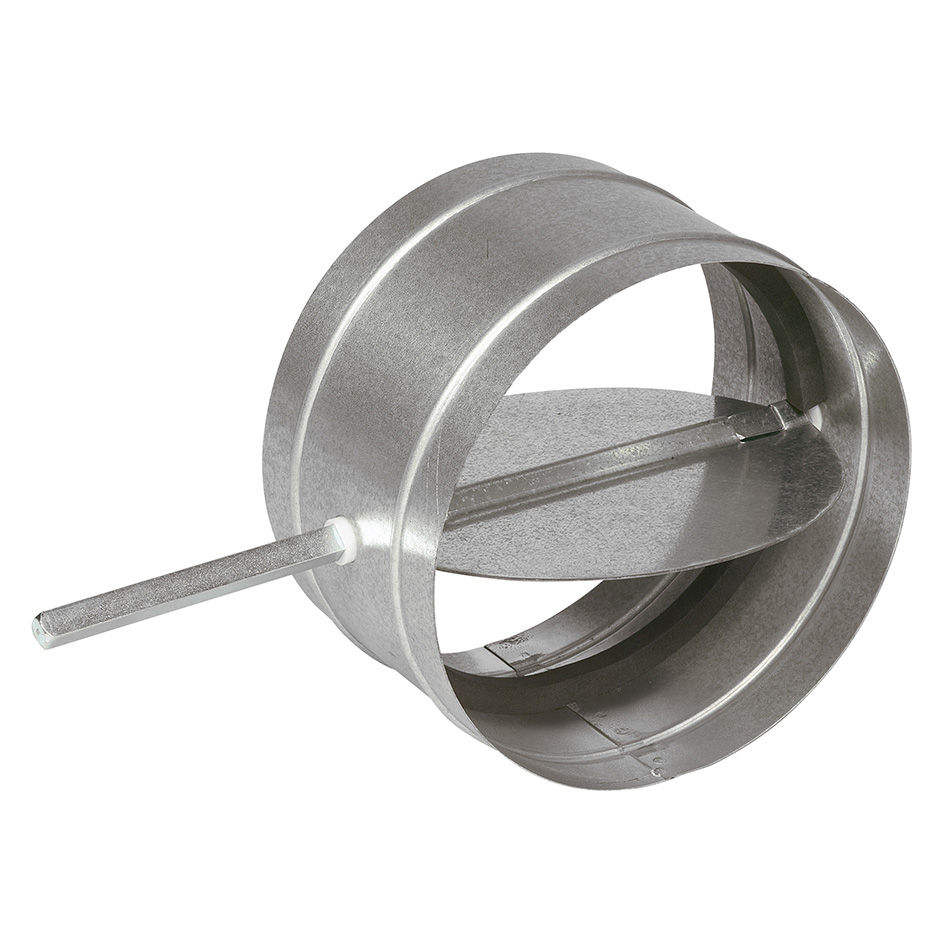Understanding HVAC Dampers: What They Are, How They Work, and Their Benefits
- Jean Swafford
- Nov 15, 2024
- 4 min read
Introduction
HVAC dampers are crucial components that significantly impact the efficiency, comfort, and functionality of your heating, ventilation, and air conditioning system. Whether you’ve experienced inconsistent room temperatures, high energy bills, or airflow problems, understanding the role of dampers can help improve your home’s comfort and your system’s overall performance. Here’s a detailed look at what HVAC dampers are, how they work, and why they’re important.
What Are HVAC Dampers?
HVAC dampers are devices installed within the ductwork of a heating or cooling system. Their main purpose is to regulate and control the flow of air throughout different zones of your home or building. Dampers can be manually or automatically operated, and they work by either blocking or allowing air to flow through specific sections of the ductwork.

Types of HVAC Dampers
Manual DampersManual dampers require a homeowner or technician to adjust airflow by turning a handle or lever. These are typically used to control air distribution manually and are effective in basic airflow regulation.
Automatic DampersAutomatic dampers operate based on signals received from a thermostat or other control device. They open and close automatically to direct airflow to the areas that need heating or cooling the most. Automatic dampers are an integral part of zoned HVAC systems.
Zone DampersZone dampers are used in zoned HVAC systems, which allow for precise temperature control in different areas or "zones" of a home or building. Each zone has its own thermostat that communicates with the dampers to either open or close, ensuring optimal comfort and energy efficiency.
Backdraft DampersThese dampers prevent air from flowing backward through the ductwork, maintaining proper airflow direction and preventing unwanted drafts. Backdraft dampers are commonly used in exhaust systems.
Bypass DampersBypass dampers help relieve pressure within the ductwork by redirecting excess air. This prevents strain on the system when certain zones are closed off.
How Do Dampers Work?
The operation of HVAC dampers varies depending on the type of damper. In a zoned system, for example, each zone’s thermostat monitors the temperature and communicates with the control panel. When heating or cooling is needed, the control panel signals the corresponding dampers to open or close, directing conditioned air to the desired zone while reducing or stopping airflow to other areas. Manual dampers, on the other hand, are adjusted by hand to achieve the desired level of airflow.
Benefits of Using HVAC Dampers
Improved Energy EfficiencyDampers allow homeowners to direct airflow only to the areas that need heating or cooling, reducing energy consumption and lowering utility bills. By shutting off airflow to unused areas, you prevent energy waste and improve overall system efficiency.
Enhanced ComfortUneven temperatures can be frustrating, especially in large homes. HVAC dampers help create more consistent temperatures by providing customized control over each zone, ensuring that every room stays at the desired comfort level.
Reduced Wear and Tear on Your HVAC SystemBy distributing airflow more efficiently, dampers can help reduce the strain on your HVAC system. This results in fewer breakdowns, lower maintenance costs, and a longer lifespan for your system.
Zoned Temperature ControlHVAC dampers make zoning possible, which means you can control temperatures in different areas independently. This feature is especially beneficial in homes with different heating or cooling needs across multiple floors or areas.
Cost SavingsBecause dampers reduce energy usage and system strain, they can lead to significant savings on your energy bills over time. A more efficient system doesn’t have to work as hard, translating into lower monthly costs.
Signs That Your Dampers May Be Malfunctioning
Uneven Temperatures Throughout the HomeIf certain rooms are too hot or too cold compared to others, malfunctioning dampers could be the culprit.
Increased Energy BillsA sudden spike in energy bills may indicate that your dampers are not directing airflow properly, causing your HVAC system to work harder.
Reduced AirflowPoor or reduced airflow from vents can point to stuck, closed, or malfunctioning dampers that block air circulation.
Strange Noises from DuctworkRattling, banging, or whistling noises may indicate a problem with the dampers, such as loose parts or debris causing movement issues.
Maintaining and Repairing HVAC Dampers
Regular maintenance of your HVAC system, including the dampers, is key to optimal performance. Manual dampers should be checked periodically to ensure they open and close smoothly. Automatic dampers require periodic inspections to ensure that the control systems are functioning properly. Lubricating moving parts, removing obstructions, and checking for wear and tear can help keep your dampers working effectively. If you suspect a malfunction, contact an HVAC professional for an inspection and repair.
When to Upgrade Your Dampers
Older or inefficient dampers can negatively impact system performance. If you have a dated HVAC system with manual dampers, consider upgrading to automatic or smart dampers. These modern options provide precise control and better efficiency, improving comfort and saving energy costs in the long run.
Final Thoughts
HVAC dampers play a crucial role in maintaining the comfort and efficiency of your home. By controlling airflow, they ensure your system delivers the right amount of conditioned air where it’s needed most. Whether you’re considering a zoned system or just want to improve your HVAC’s performance, dampers are an essential component to consider.


Comments